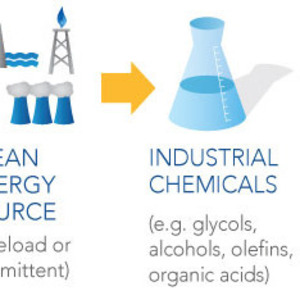Liquid Light, Coca-Cola sign technology development agreement

Liquid Light
July 21, 2015
BY Liquid Light
Liquid Light announced it has signed a technology development agreement with The Coca-Cola Co. The objective of the agreement is to accelerate the development of Liquid Light’s technology which can make mono-ethylene glycol (MEG) from carbon dioxide. Liquid Light’s approach enables more efficient use of plant material to make MEG. For example, a bio-ethanol production facility could make bio-MEG from the CO2 byproduct that results from converting plant material into ethanol. The technology has the potential to reduce both the environmental footprint and the cost of producing MEG. MEG is one of the components used to make The Coca-Cola Co.’s plant-based PET plastic bottle.
Additional details of the agreement are not being disclosed at this time.
Advertisement
Advertisement
Related Stories
The U.S. Energy Information Administration maintained its forecast for 2025 and 2026 biodiesel, renewable diesel and sustainable aviation fuel (SAF) production in its latest Short-Term Energy Outlook, released July 8.
XCF Global Inc. on July 10 shared its strategic plan to invest close to $1 billion in developing a network of SAF production facilities, expanding its U.S. footprint, and advancing its international growth strategy.
U.S. fuel ethanol capacity fell slightly in April, while biodiesel and renewable diesel capacity held steady, according to data released by the U.S. EIA on June 30. Feedstock consumption was down when compared to the previous month.
XCF Global Inc. on July 8 provided a production update on its flagship New Rise Reno facility, underscoring that the plant has successfully produced SAF, renewable diesel, and renewable naphtha during its initial ramp-up.
The USDA’s Risk Management Agency is implementing multiple changes to the Camelina pilot insurance program for the 2026 and succeeding crop years. The changes will expand coverage options and provide greater flexibility for producers.
Upcoming Events










